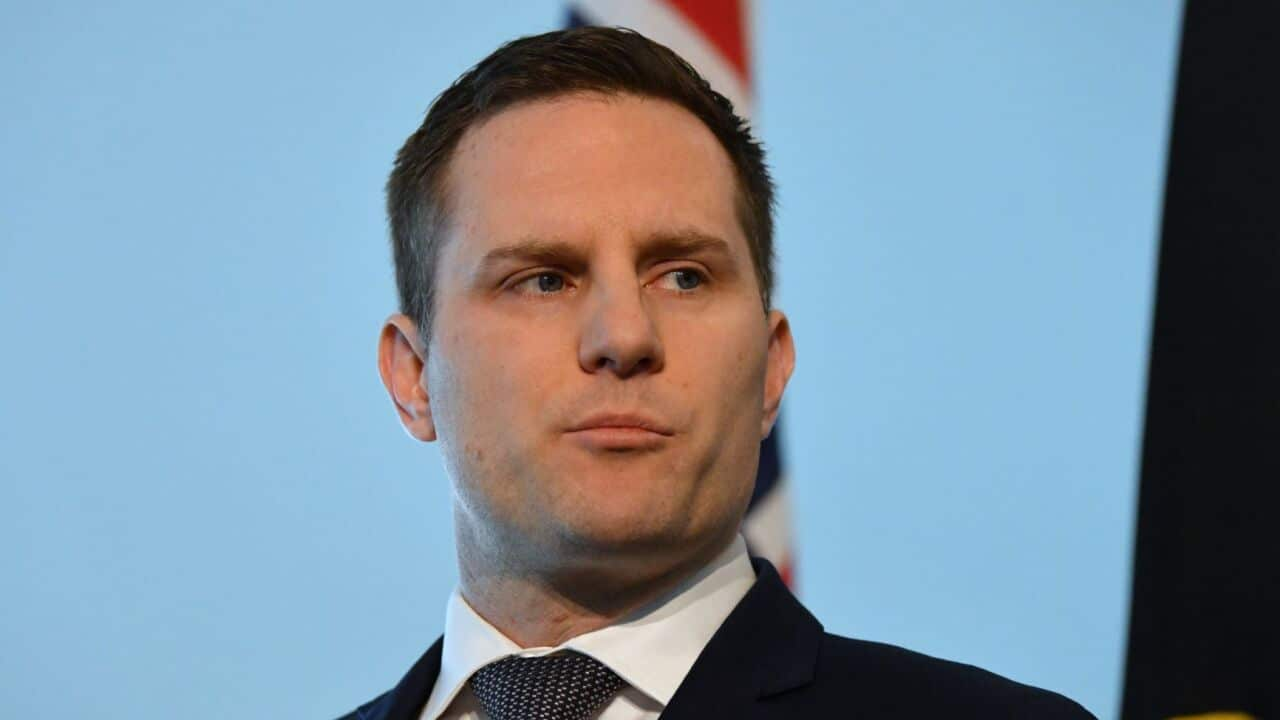The saga of Novak Djokovic's visa cancellation and deportation has thrown an international spotlight on the extraordinary powers Australia's immigration minister is granted under the Migration Act.
The men's world number one tennis player was given the all-clear to leave immigration detention on 10 January after , but Immigration Minister Alex Hawke then used his personal powers to cancel Djokovic's visa for a second time - a decision that was upheld by a full three-judge bench of the Federal Court on 16 January.
What are the personal powers vested to ministers under the Migration Act?
The immigration and home affairs ministers, who administer the Migration Act, share 47 personal powers.
Under these powers, the ministers are able to cancel visas on character grounds, order the release of those in immigration detention, vary processes and substitute a more favourable decision than one handed down by a tribunal such as the Administrative Appeals Tribunal (AAT).
The AAT is the final, independent avenue of review for those seeking to challenge visa and visa-related decisions made by the Department of Home Affairs.
"Personal powers can be used unfavourably, like when they are used to cancel a visa, or they can be used favourably, such as to release someone from detention, or allow those who are barred from applying for a visa to make an application for one," said Eve Lester, a refugee and migration law expert at the Australian National University.
Dr Lester said they are called "god powers" because they "are non-compellable, non-reviewable and non-enforceable".
How was the minister able to cancel Djokovic's visa?
Dr Lester said the discretionary powers stem from Section 51(xix) of the Australian Constitution, which notes the Parliament has the power to make laws with respect to "naturalisation and aliens".
"So the constitution is the source power, and then the government creates legislative powers, such as discretionary powers."
While there have been calls for discretionary powers to be exercised lawfully and for good reason, strong grounds for using them had been eroded over the years, she said.
Mr Hawke used powers granted to him under Section 133C of the Migration Act to cancel Djokovic's visa. He said it was in the public interest to do so because the Serbian tennis star was a "talisman of anti-vaccination sentiment" and that his presence in Australia might incite "civil unrest".
Dr Maria O'Sullivan is an associate professor and the deputy director of the Castan Centre for Human Rights Law at Monash University, and said "might" was a key word in Djokovic's case.
Section 133C grants personal powers to cancel visas on Section 116 grounds, the latter of which states, among other things, that the minister may do so if they are satisfied the individual "is or may be, or would or might be, a risk" to health, safety or good order of the Australian community or segment of the community.
This was a change put forward by the current prime minister and then-immigration minister Scott Morrison in 2014 that ultimately passed the parliament.
"That really helped the government win the case [against Djokovic] because ... that's a very low threshold, meaning in order to cancel someone's visa, you don't have to show beyond reasonable doubt that they're going to cause civil unrest ... only that they might," Dr O'Sullivan said.
What problems surround the use of personal powers?
Djokovic had challenged the decision by the immigration minister to cancel his visa, but three Federal Court judges unanimously ruled on Sunday to uphold the decision.
Chief Justice James Allsop said the court's ruling is in no part a decision on the merits or wisdom of the visa cancellation made by Mr Hawke, but rather a legal judicial review of the lawfulness and legality of that cancellation.
Australian migration law academic at the University of New South Wales' Andrew and Renata Kaldor Centre for International Refugee Law, Dr Sangeetha Pillai, said Djokovic's case had exposed how difficult it is to challenge the wide discretionary powers.
"What is clear is that the bar to argue that the minister has acted unlawfully with a power like this, on the grounds that he was irrational or legally unreasonable — was a really high bar to get over," Dr Pillai said.
"So it was clear there was complexity in the law, but it was always clear it was always going to be a difficult case for Djokovic to make out, simply because the amount of power given to the [immigration] minister here is so broad."
Dr O'Sullivan said the problem with some personal powers, such as those under Section 133C, is that the merits of the decision cannot be reviewed.
"And you might say, 'well how can you stop people using the Administrative Appeals Tribunal?'. The answer is, it's not a court, it's part of the executive [branch of government] and as a result, you can put limits on who can use the AAT," she said.
Are there criticisms of personal powers?
Senior lawyer at the Human Rights Law Centre, Scott Cosgriff, said he believed the original rationale behind discretionary powers was that they should provide a "positive common-sense relief valve" when there is injustice.
"And a perfect example of that is to release someone from immigration detention," Mr Cosgriff said.
He said these powers are often used in a "cruel" way to make life "impossibly hard for people", such as keeping asylum seekers in immigration detention if there's "no reason to do so".
A found there were at least 20 non-delegable, non-reviewable and non-compellable personal powers available to ministers responsible for the Migration Act, up from just three in 1989.
This was described as an "astonishing development of unchecked power".
Politicians have also previously raised concerns.
In 1989 when Australia was led by Bob Hawke's Labor government, then-immigration minister Robert Ray pushed to remove personal powers granted under the Migration Act.
Mr Ray said they had "long been a source of public criticism", and were "perceived to be obscure, arbitrarily changed and applied, and subjected to day-to-day political intervention in individual cases".
However, the government had a minority in the Senate, and the bill was blocked and ultimately withdrawn because the Opposition and Australian Democrats crossbenchers who held the balance of power, believed it went too far in removing ministerial discretion.
In 2008, Labor's then-immigration minister Chris Evans told Senate estimates that he felt he had "too much power".
“I am uncomfortable with that, not just because of concern about playing God, but also because of the lack of transparency and accountability for those decisions and the lack in some cases of any appeal rights against those decisions," Mr Evans said at the time.
Should personal powers be reviewed?
The Visa Cancellations Working Group, Asylum Seeker Resource Centre and Refugee Advice and Casework Centre have called for the discretionary powers to be reviewed.
This is necessary because they have led to a "huge increase" in visa cancellations that were "alarmingly prone to error and injustice", the bodies said.
Dr Pillai supports these calls.
She said a review was necessary because many of the discretionary powers have important review mechanisms, such as merit reviews, excluded.
This means that "people can't get someone to look at decisions and see whether they're fair".
"The powers are very, very wide; so it's very difficult to challenge exercises of power successfully," she said.
Senior lawyer at the Human Rights Law Centre, Scott Cosgriff said there was a "desperate need for reform".
He said the problem with discretionary powers is that they "create a space where political leaders have complete authority".
"We saw this in the Djokovic case where the question before the court wasn't whether this was an appropriate decision, it was whether the minister had the power to make it, which he does," he said.
Mr Cosgriff said reform was needed "so the government don't make arbitrary decisions that are immune from checks and balances that we all expect in a healthy democracy".














